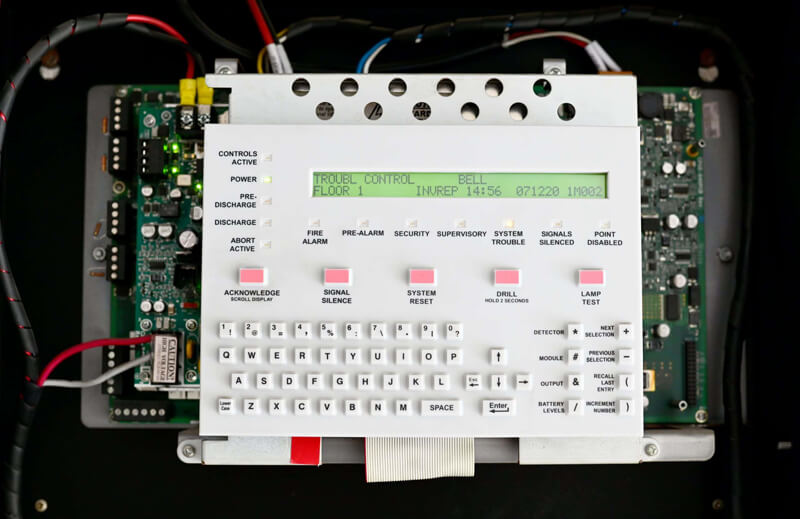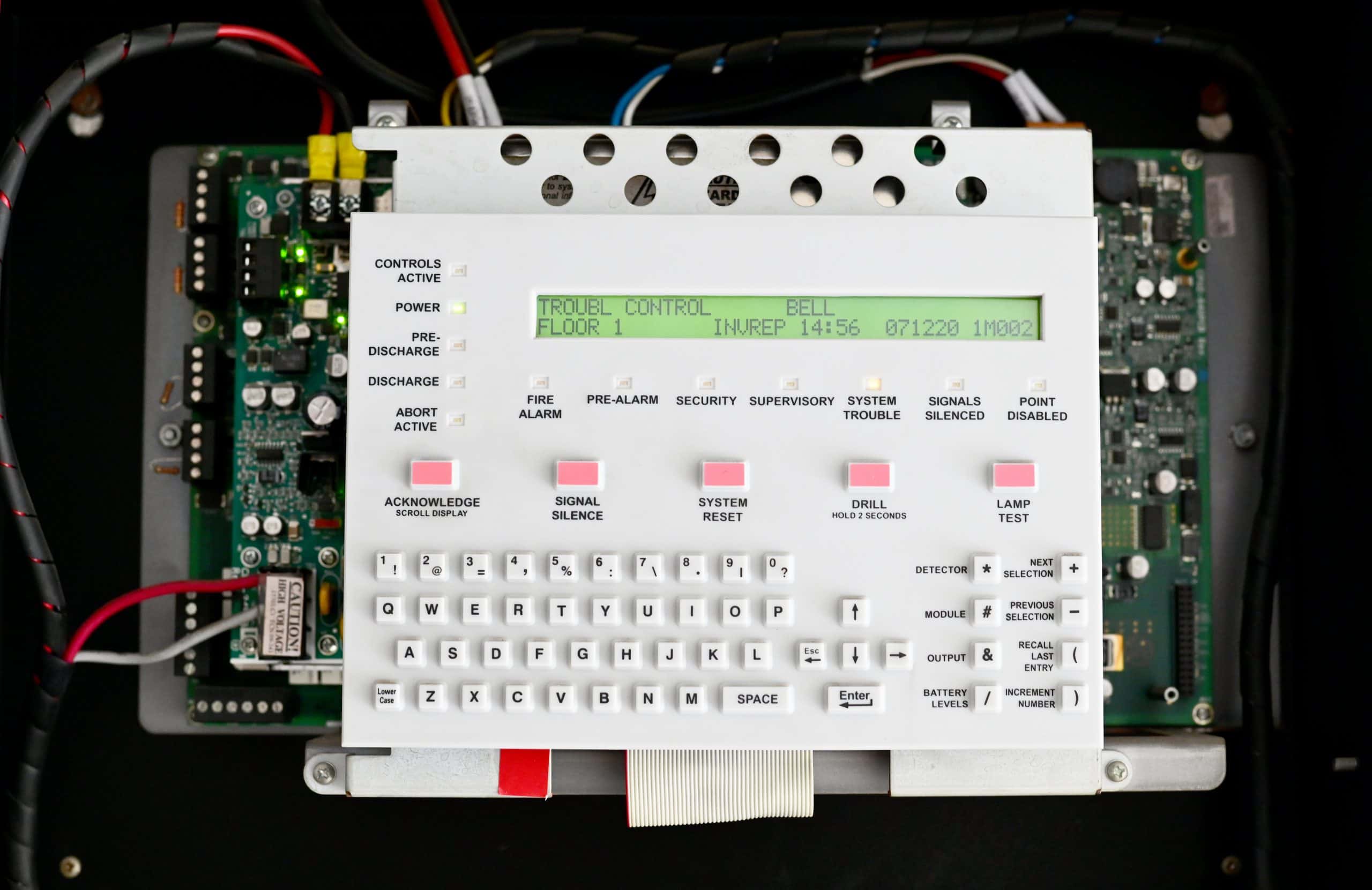To decide what type of fire alarm system will best protect your building, consider the layout and size of your facility, hazard type, and any other needs you may have as the business owner. Work with a fire protection professional to determine the type of fire alarm system that would be best for protecting your building, and don’t forget to consider fire alarm monitoring.
Your fire protection company should be able to give you information on all the of commercial fire alarm system options and walk you through the process of choosing a system that checks all your boxes from a safety and convenience standpoint.
Here’s some information on the process for choosing the right system type for your building.
What are the commercial fire alarm system types?
There are two main types of commercial fire alarm systems, addressable and conventional. These systems vary in many ways from scope of protection to how fire and smoke are detected.
To understand the best choice for your facility type, it’s important to know the differences between these two main system types.
- Addressable
- This type of fire alarm system offers hyper specific identification of the location of fire in your building. Each location is given a unique address so that when emergency personnel need to find and extinguish a fire, they know exactly where to go.
- Benefits of this system type would be more precise identification of fire location, and safer and more efficient evacuation.
- Ideal for larger commercial buildings.
- Conventional
- Conventional fire alarm systems are simpler than addressable in that there is only one central control panel from which all notification devices are connected. Instead of specific “addresses” as is the case with addressable systems, there are numbered zones or sections that cover larger areas.
- Benefits of this system type would be cost and reliability.
- Ideal for smaller commercial buildings like office buildings or retail shops.
“The main difference in systems is the type of information that is displayed during an event,” explains Adam W., Fire Alarms Service Manager at Fire Systems, Inc. “If they are a large facility and want to know exactly where an alarm has come from, then we know they are looking at an addressable system that can identify each individual device independently. If they aren’t concerned with knowing exactly which device caused an alarm, then they can go for a cheaper conventional system that may say there was alarm on the 2nd floor. As opposed to giving them a specific location, it will give them an area to look at.”
Determining the best system type for your building
There are a lot of decisions that go into choosing the appropriate fire alarm system type for your building and overall needs. Here are a few considerations.
- Level of protection
- The size and layout of your building will dictate what system type will offer the best protection
- Occupancy and use will also affect your decision; what areas are occupied? What type of hazards are present?
- Existing system / upgrades
- Depending on your current system, you may need a total system replacement, or you may be able to use components from your existing system and just upgrade
- Functionality
- Addressable systems offer more detailed information and tend to have an easier to use control panel; conventional alarms can be harder to decipher
- Code requirements
- Your building may require a certain type of system based on fire codes
- Cost
- Addressable systems cost more up front; conventional systems are cheaper to install
After assessing these factors, meet with your fire protection company to discuss your needs and expectations.
Keep in mind that the constraints of your building may affect your decision-making process.
“A lot of these decisions are made when the contractor begins planning out the construction of a new building,” explains Adam. “Most of the installations that we do are when a customer decides that is time to upgrade their existing system. There are a lot more considerations if this is the case because we always try to reuse what we can.”
Is it time to upgrade or replace?
It may be time to replace or upgrade your current fire alarm system if the system is over 10 years old, the system or its components are no longer in production, or there’s been changes in fire code requirements due to changes in occupancy.
Provided By: firesystems.net
![]()
If you would like liquidvideotechnologies.com to discuss developing your Home Security System, Networking, Access Control, Fire, IT consultant, or PCI Compliance, please do not hesitate to call us at 864-859-9848 or you can email us at deveren@liquidvideotechnologies.com.



Recent Comments